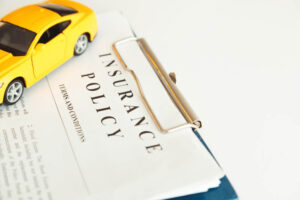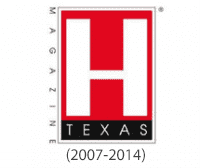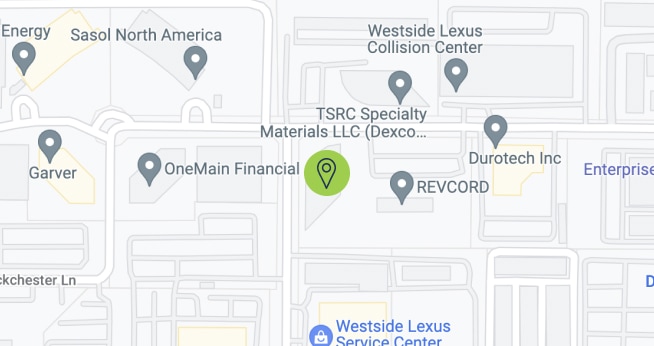What does full coverage insurance cover in Texas?

Texas law requires motorists to purchase liability insurance coverage. However, auto insurance companies offer additional coverage. Full insurance coverage will include required liability coverage and optional coverages such as personal injury protection (PIP), collision coverage, comprehensive coverage, and uninsured/underinsured motorist coverage. Drivers who purchase full insurance coverage can better protect themselves in an accident.
What Are the Minimum Levels of Coverage Required by Texas?
Texas requires drivers to carry minimum policy limits of liability coverage. These minimum limits include:
- $30,000 per person of bodily injury liability coverage
- $60,000 per accident of bodily injury liability coverage
- $25,000 per accident of property damage liability coverage
However, drivers can purchase higher policy limits for an increased premium. Purchasing a policy with higher liability limits can protect drivers if they cause a crash. Otherwise, they may have to pay accident losses out of pocket once they exhaust their liability coverage.
What Is Covered by Liability Insurance?
Liability insurance provides coverage whenever a driver causes an accident, paying accident victims for the losses they sustain due to the crash. Liability coverage comes in two forms:
- Bodily injury coverage – Bodily injury coverage pays compensation to a car accident victim who suffers injuries. It can pay for expenses or losses such as medical treatment and rehabilitation, long-term care, lost income, reduced earning capacity, pain and suffering, and lost quality of life. The coverage can also pay compensation in a wrongful death claim brought on behalf of a deceased accident victim.
- Property damage coverage – Property damage coverage pays to repair or replace others’ property damaged in a car accident caused by the policyholder. Coverage can compensate other drivers to pay for vehicle repairs or reimbursement for the value of their cars when totaled in the crash. It can also compensate other property owners, such as when an at-fault driver hits somebody’s fence with their vehicle.
What Is Covered by Collision Coverage?
Optional collision coverage can pay for repairs to the policyholder’s vehicle to fix damage from a crash, regardless of who caused the accident. Sometimes, an accident “totals” a vehicle, meaning the vehicle’s repair costs exceed the vehicle’s value. In that case, collision coverage can reimburse the owner for the actual cash value of their car.
State law does not require drivers to purchase collision coverage. However, when vehicle owners lease or take out a loan on their car, the bank may require them to purchase collision coverage.
What Is Comprehensive Coverage?
Optional comprehensive coverage pays for repairs for vehicle damage not caused by a collision, including due to weather, debris, fire, theft, or vandalism. This coverage can also provide reimbursement for the cash value of a vehicle when severe damage makes the vehicle a total loss or a vehicle disappears due to theft.
Like collision coverage, state law does not require drivers to purchase comprehensive coverage. However, banks may require owners to purchase comprehensive coverage for leased vehicles or vehicles purchased with a loan.
What Is Personal Injury Protection?
Personal injury protection (PIP) coverage reimburses medical expenses and lost wages to drivers and their passengers when they suffer injuries in a car accident, regardless of who caused the crash. PIP ensures that people injured in a car accident can get the medical care they need without waiting to resolve a liability insurance claim or car accident lawsuit.
In Texas, auto insurance providers must include PIP coverage in policies. However, policyholders may decline PIP coverage via written notice to their insurer.
What Is Uninsured Motorist Coverage?
Uninsured motorist coverage protects drivers and their passengers if they get hurt in an accident with a driver who doesn’t have liability insurance coverage. With uninsured motorist coverage, an injured accident victim can turn to their insurance company to recover compensation they have the right to obtain from an at-fault uninsured driver. Uninsured motorist coverage also applies in hit-and-run accidents when the injured party cannot identify or locate the driver.
Insurers in Texas must offer uninsured motorist coverage, which policyholders may decline in writing.
Are There Additional Texas Automobile Insurance Options Available?
Insurance companies may offer additional coverage options, including:
- Underinsured motorist coverage – Underinsured motorist coverage works like uninsured motorist coverage. However, it applies in cases where the at-fault driver has liability insurance, but their policy limits cannot cover all an accident victim’s losses. Insurers must offer underinsured motorist coverage, although policyholders can decline the coverage.
- Medical payments coverage – Medical payments (MedPay) coverage reimburses drivers and passengers for the medical expenses they incur after a crash. MedPay also applies when a policyholder suffers injuries while riding in someone else’s vehicle or as a pedestrian hit by a car.
- Towing and labor coverage – This coverage pays for towing when a vehicle becomes disabled due to an accident or mechanical issue. It also covers labor services, like changing a flat tire or jumpstarting a battery.
- Rental reimbursement coverage – This coverage helps cover car rental fees when a driver needs temporary transportation while their car gets repaired for accident damage or is stolen. Some insurers’ rental reimbursement coverage will also pay for taxi or rideshare fares.
Is Full Insurance Coverage Required in Texas?
Texas does not require drivers to purchase full insurance coverage. State law only requires drivers to purchase the minimum policy limits of liability coverage. However, insurance companies must offer personal injury protection (PIP), uninsured, and underinsured coverage, which policyholders can decline in writing. Drivers may optionally purchase other coverage offered by the insurance company or purchase higher liability coverage limits.
Contact a Houston Car Accident Lawyer
If you’ve been hurt in a car crash in Houston, get the legal help you need to maximize your financial recovery. Contact Fleming Law today for a free, no-obligation consultation with a Houston car accident lawyer near you. We can explain your legal options for pursuing compensation for your car repairs, medical treatment, lost income, and pain and suffering.

Brendan received his JD from South Texas College of Law and his MBA from Baylor University. He then began his legal career as in-house counsel for a publicly-traded company, advising on matters such as mergers and acquisitions, securities, compliance, and general corporate transactions. He then worked at a national law firm in which he represented commercial banks, private equity firms, and business owners in complex transactions before joining Fleming Law, Brendan uses his considerable knowledge of business-related matters by working on cases involving business law, real estate law, and contracts. Connect with me on LinkedIn








